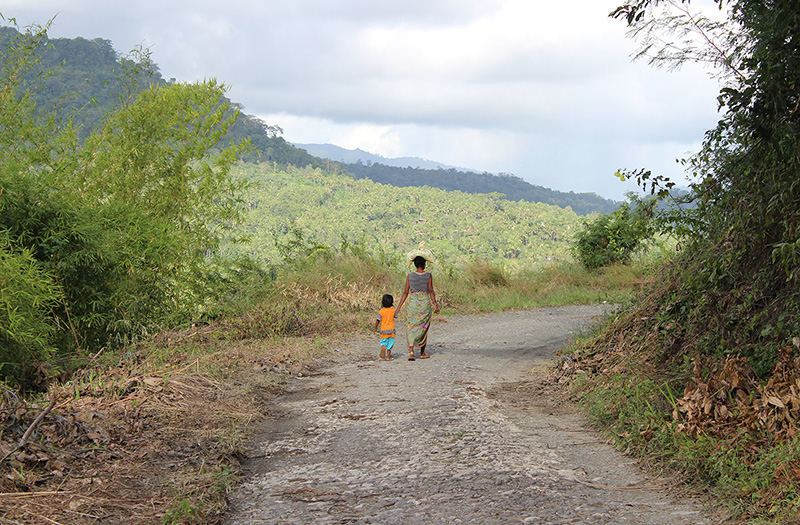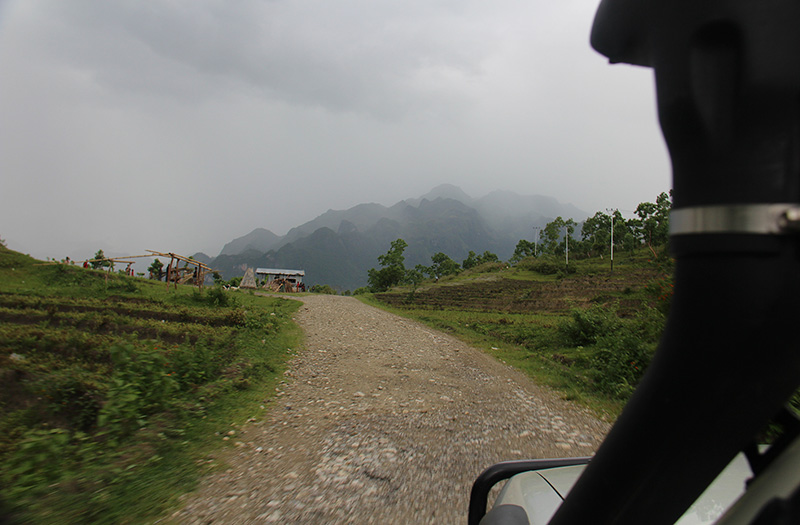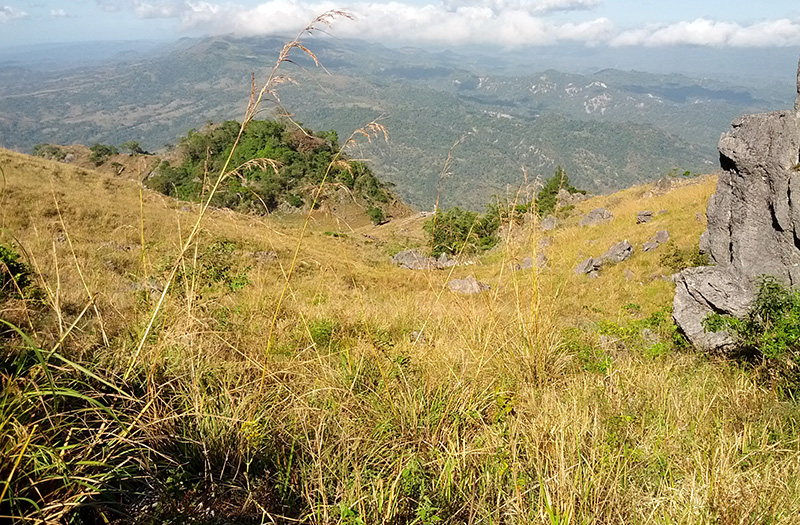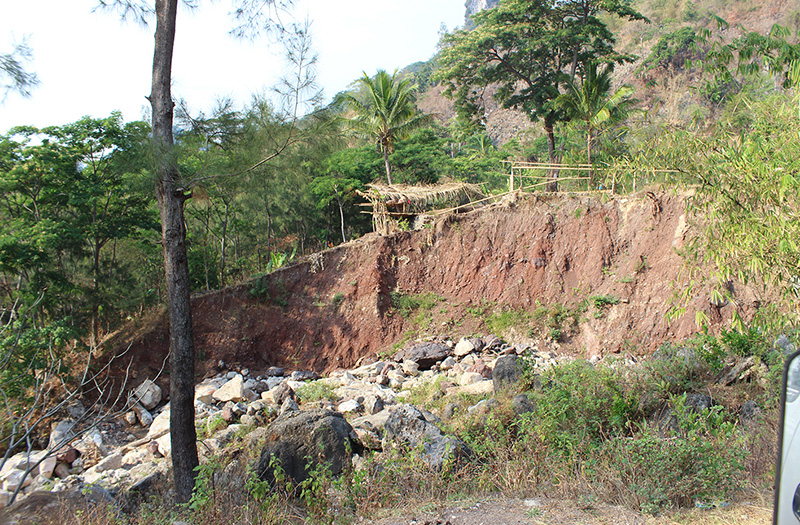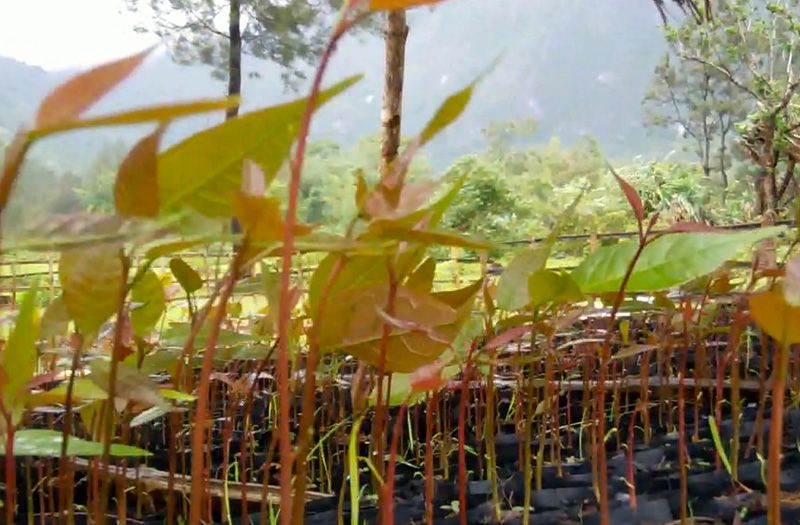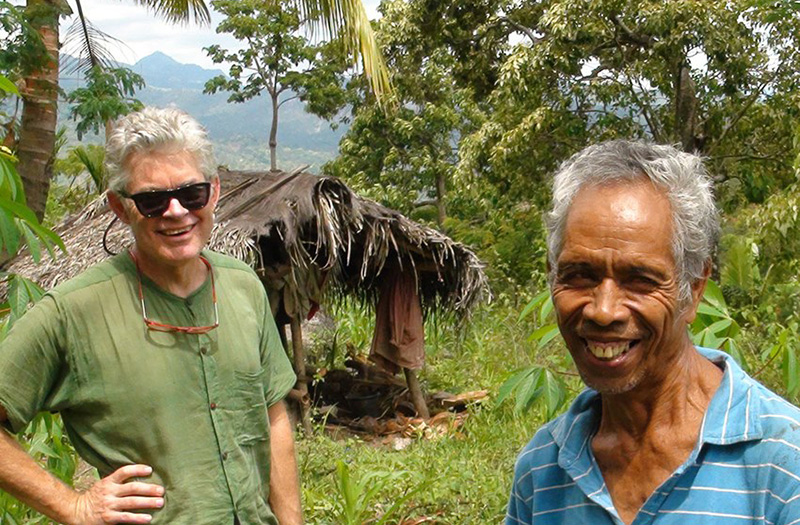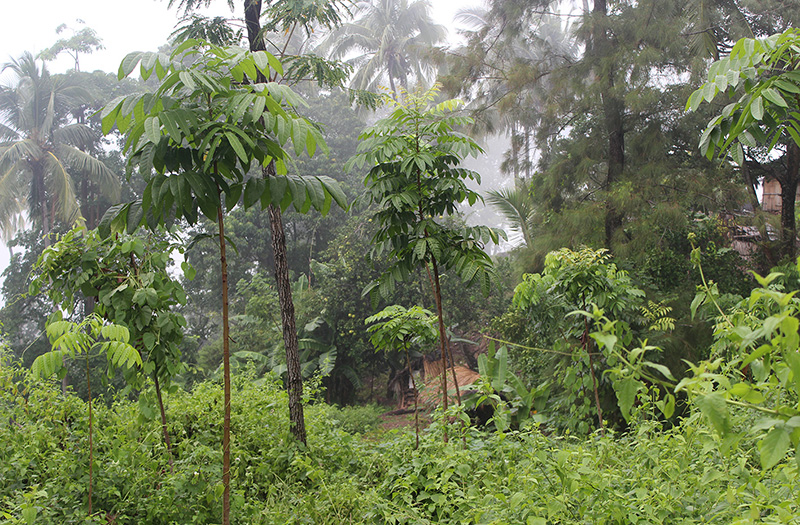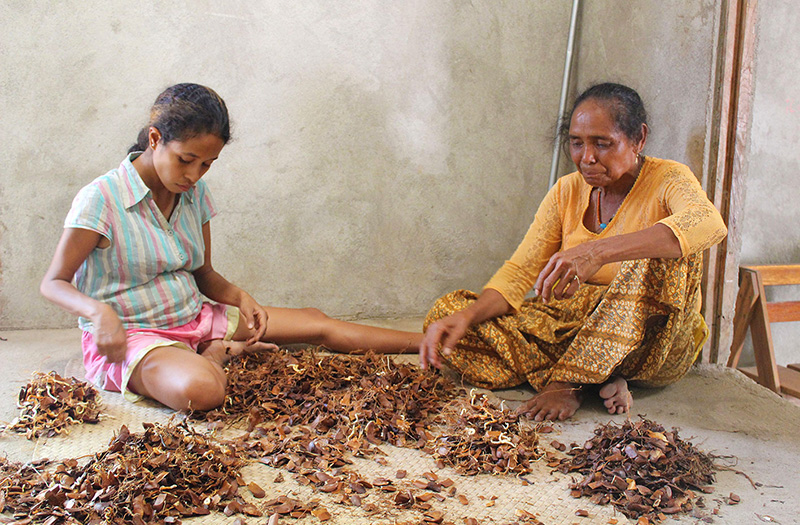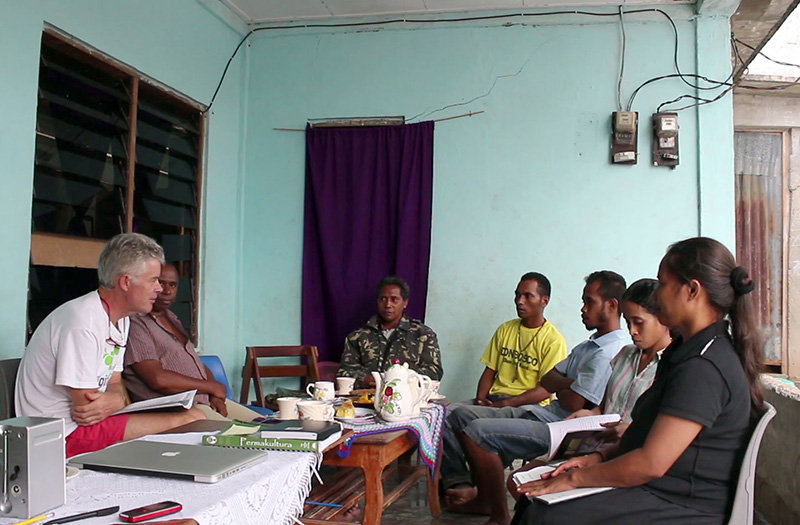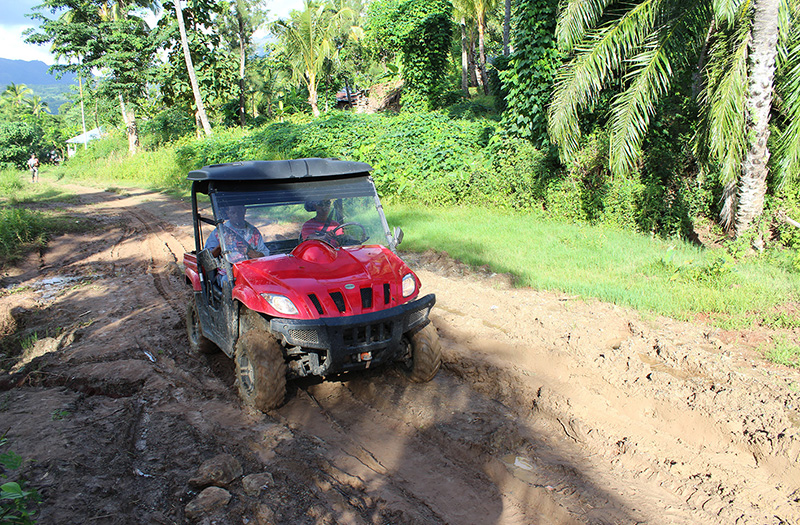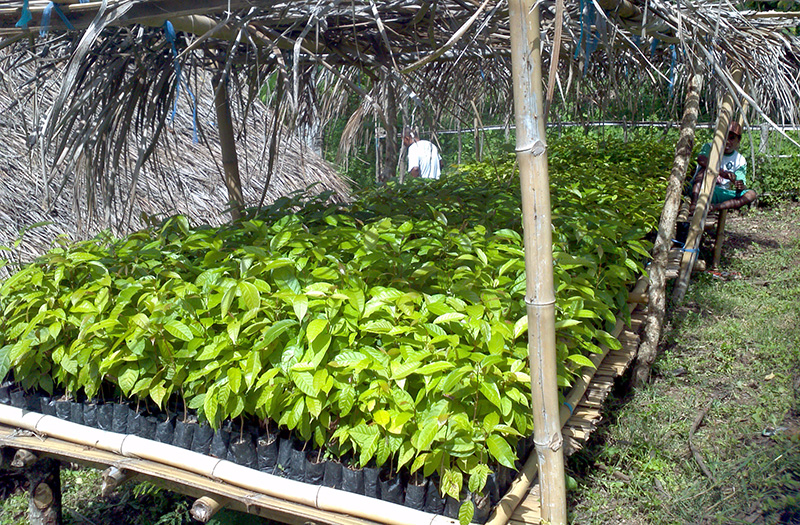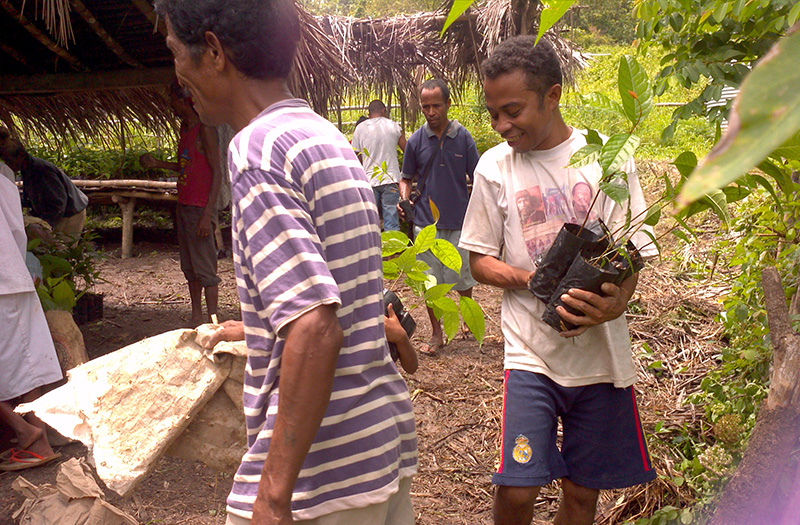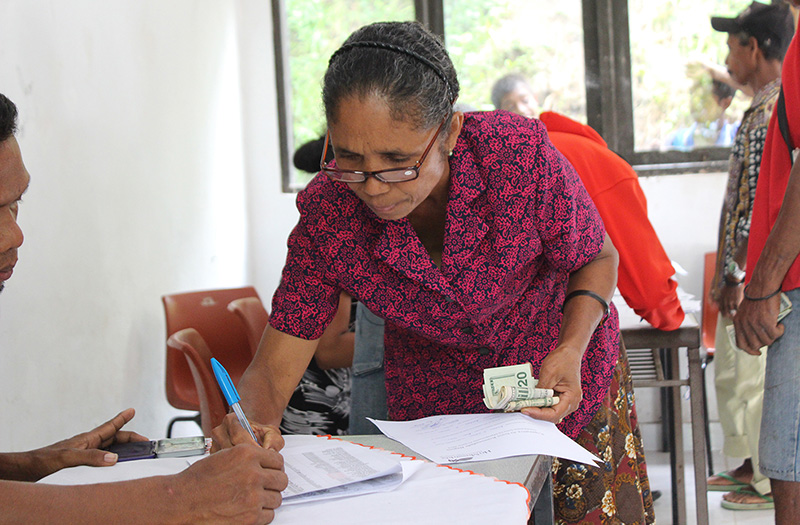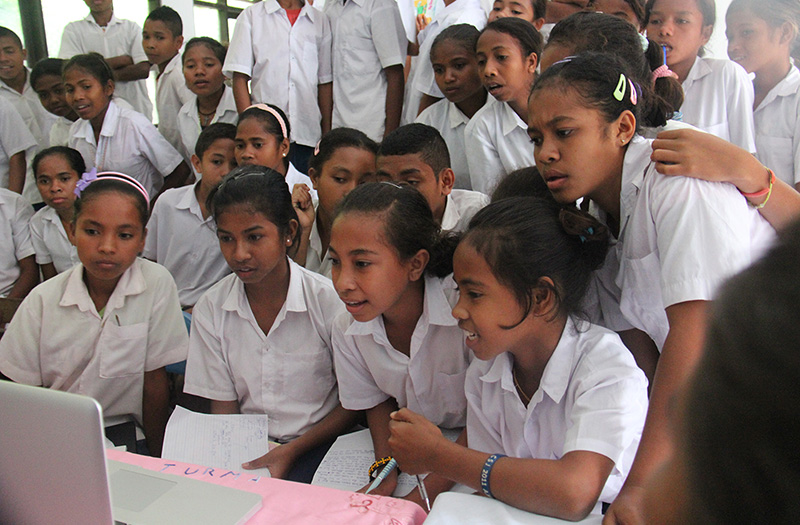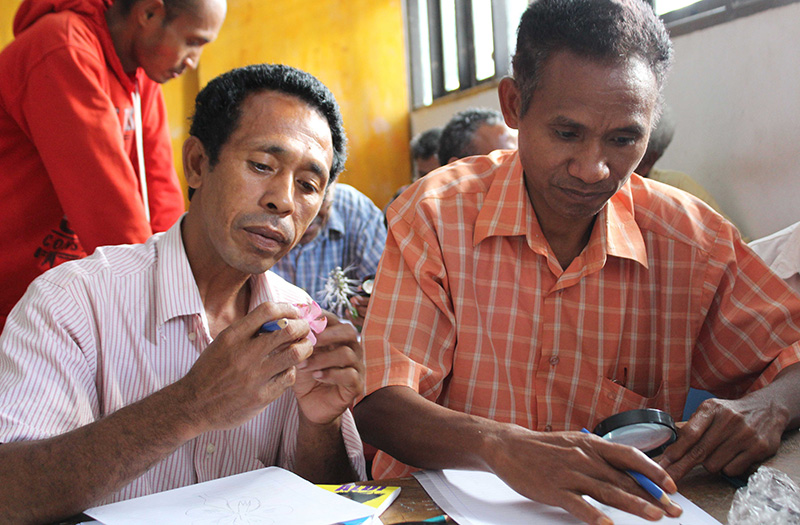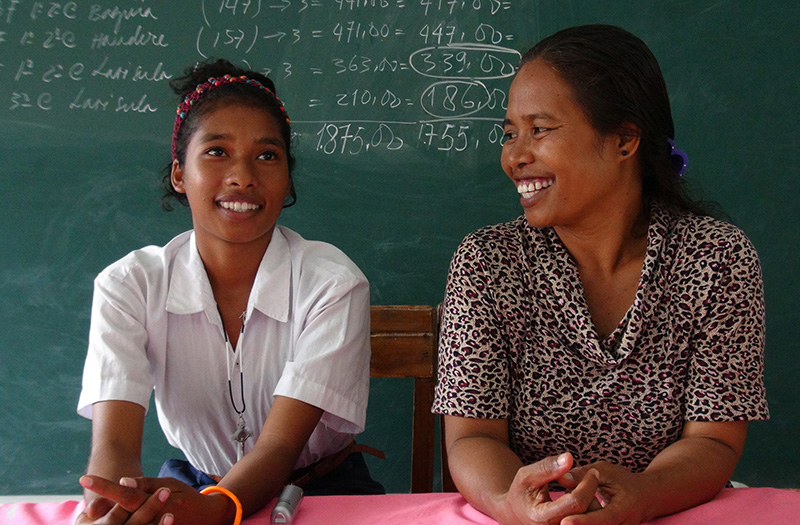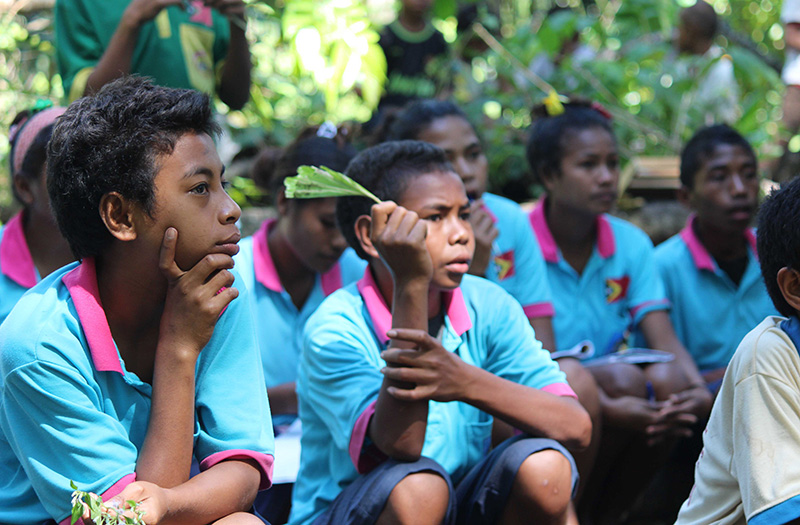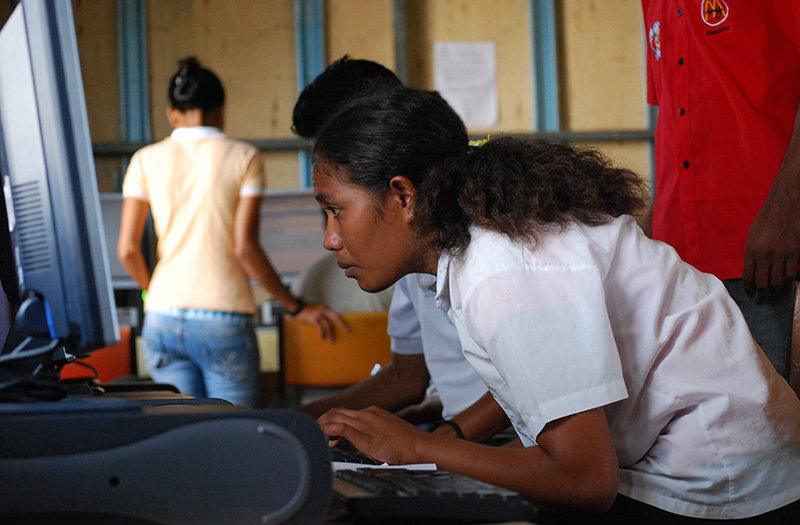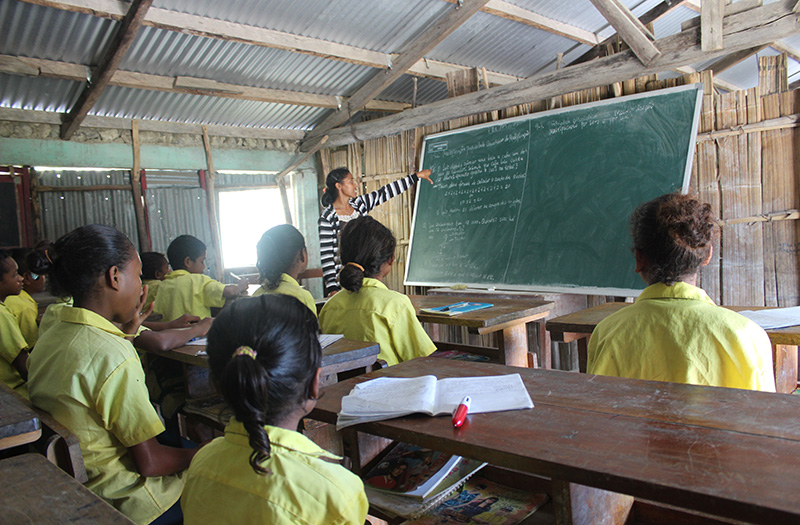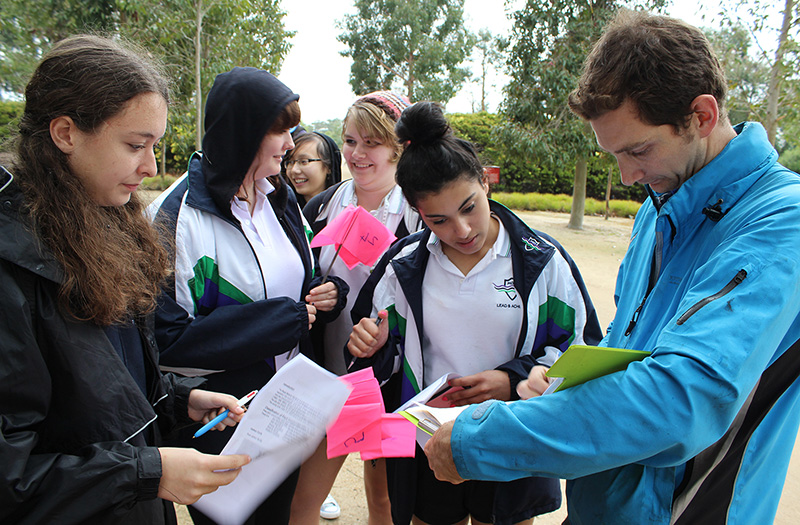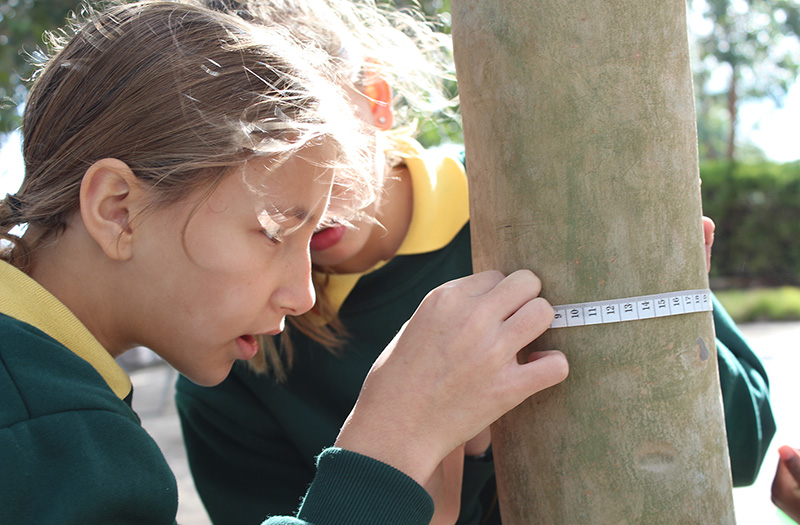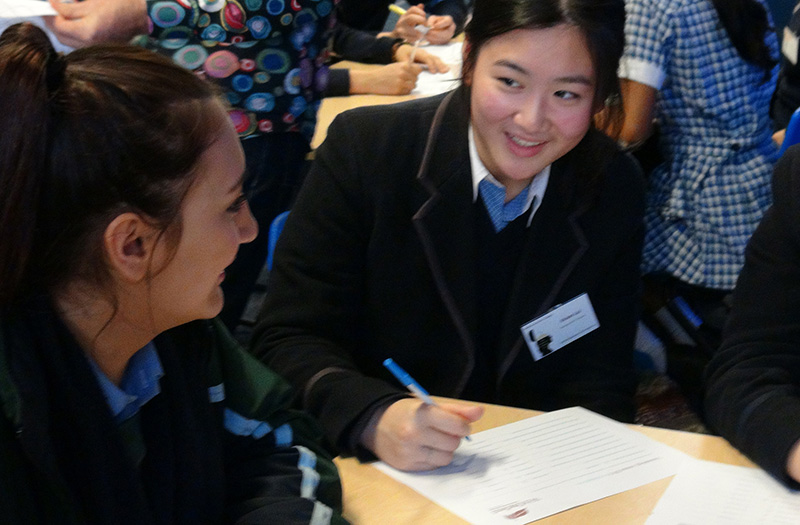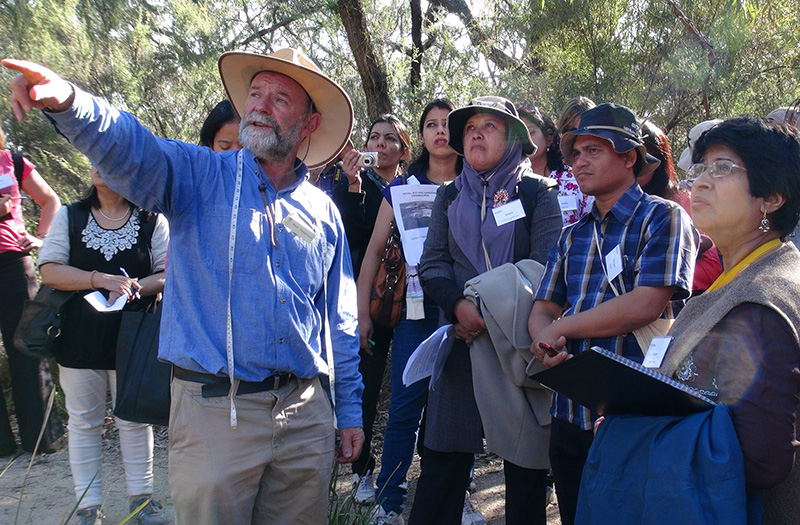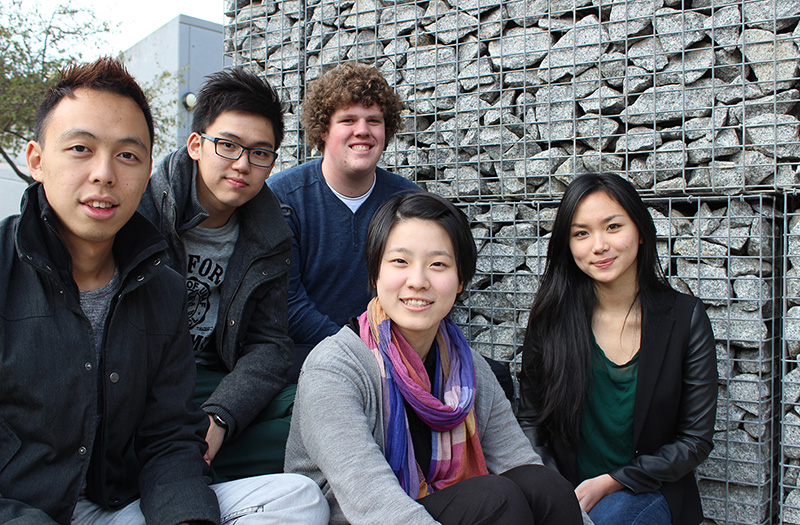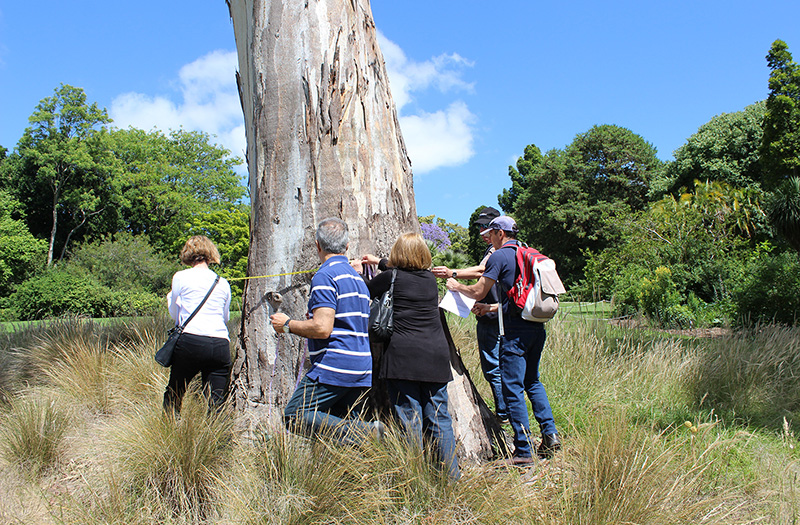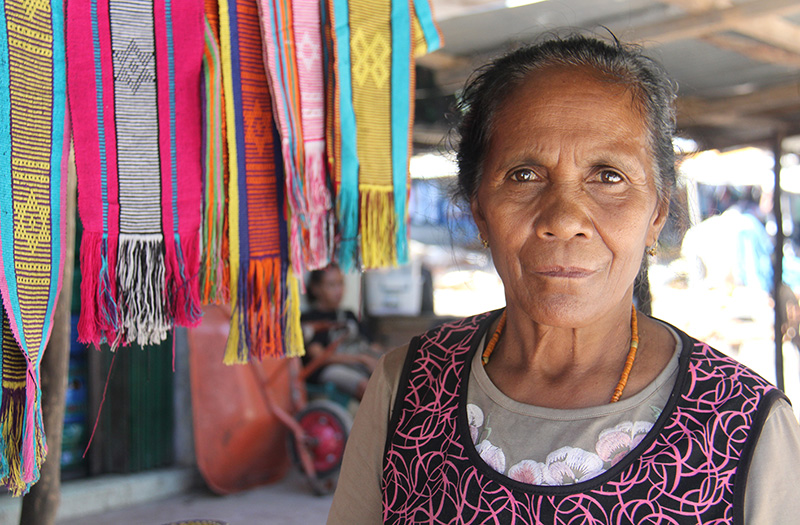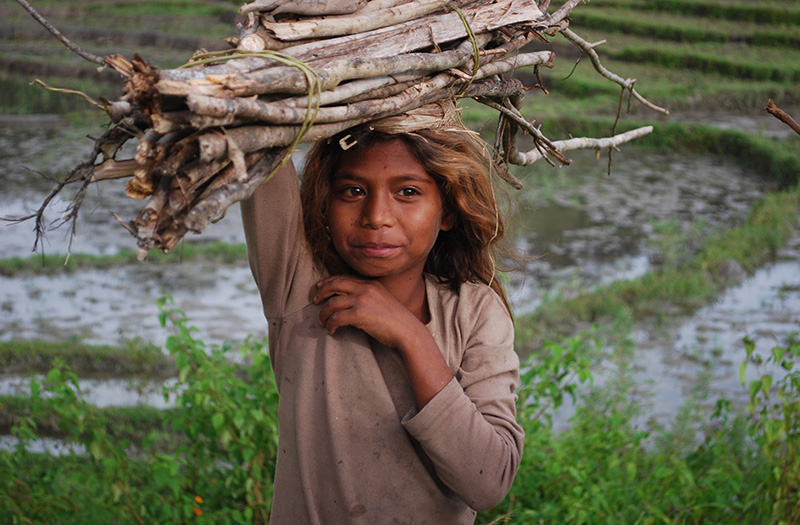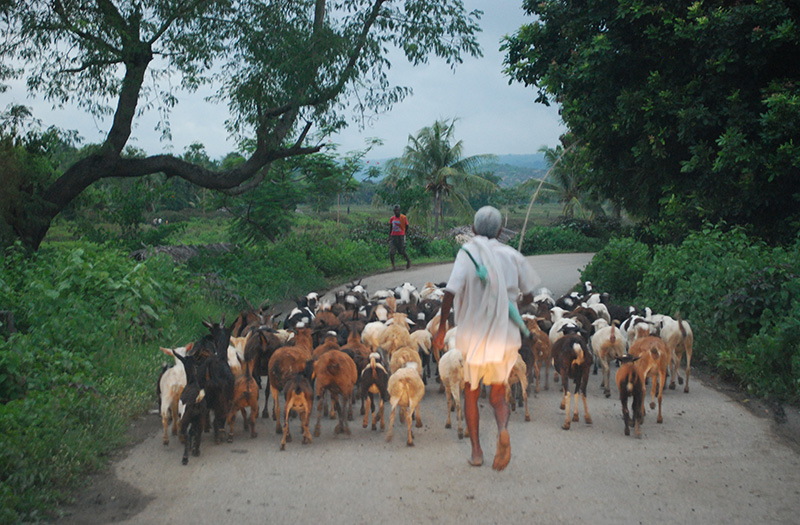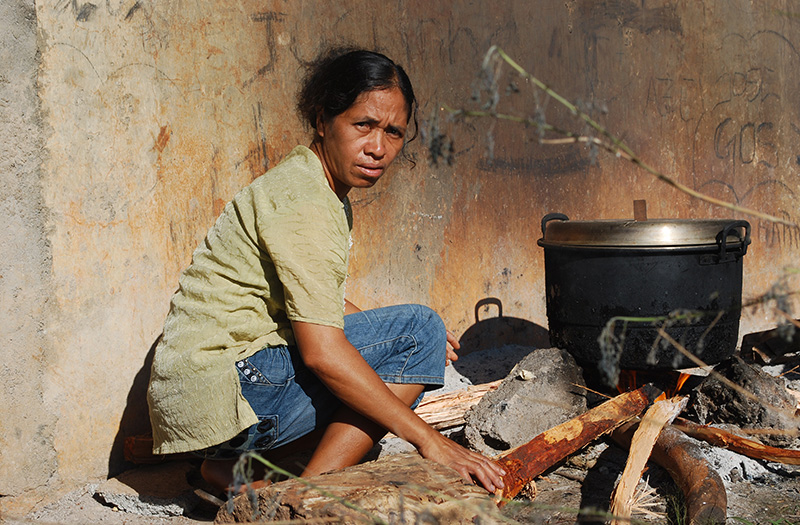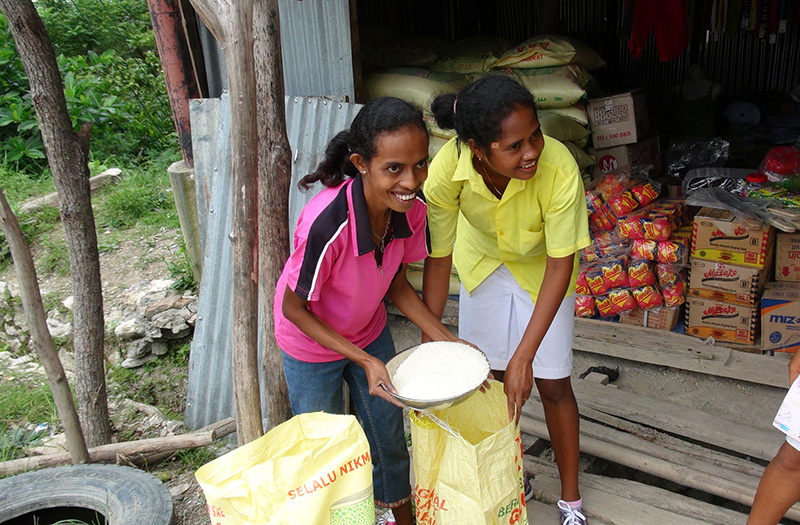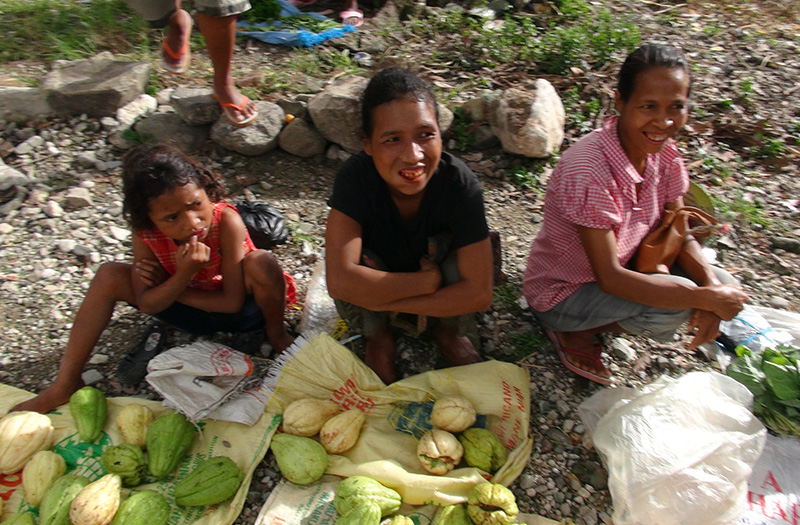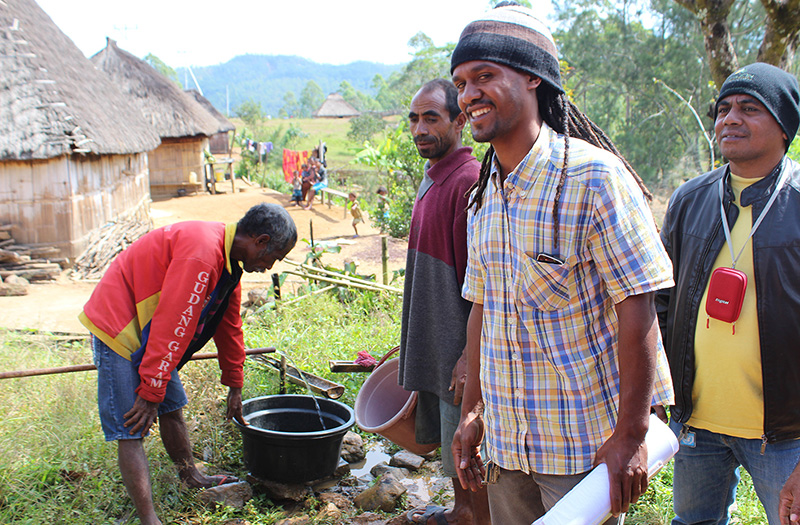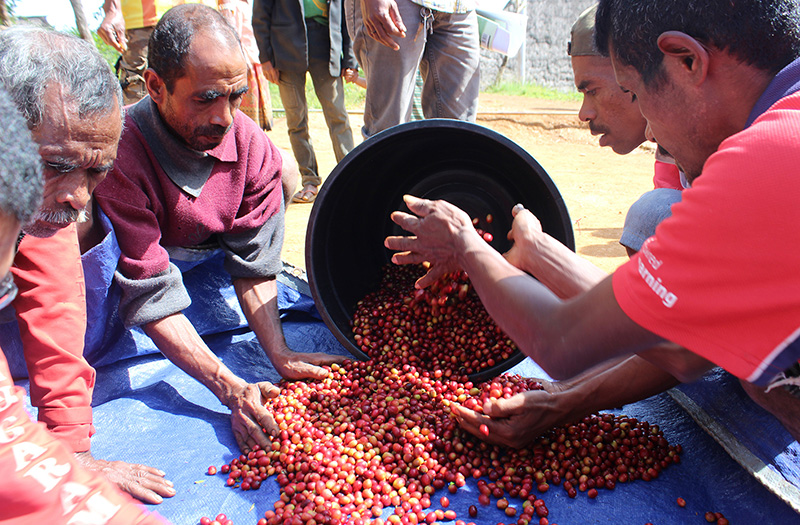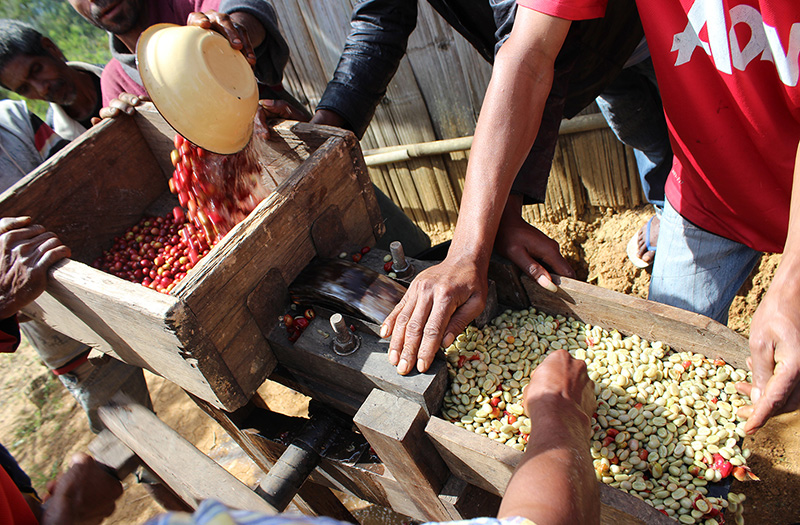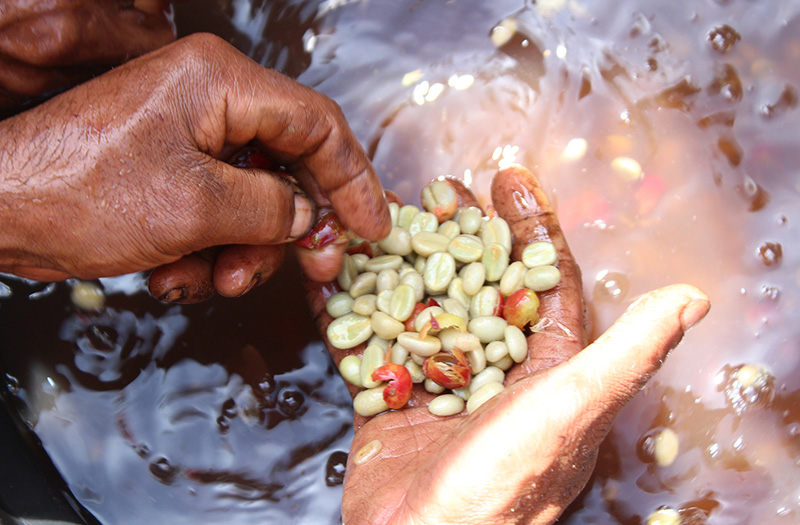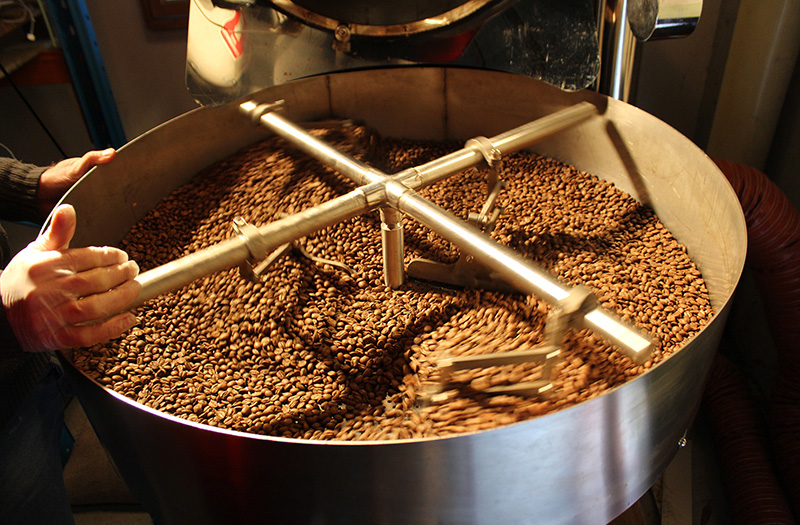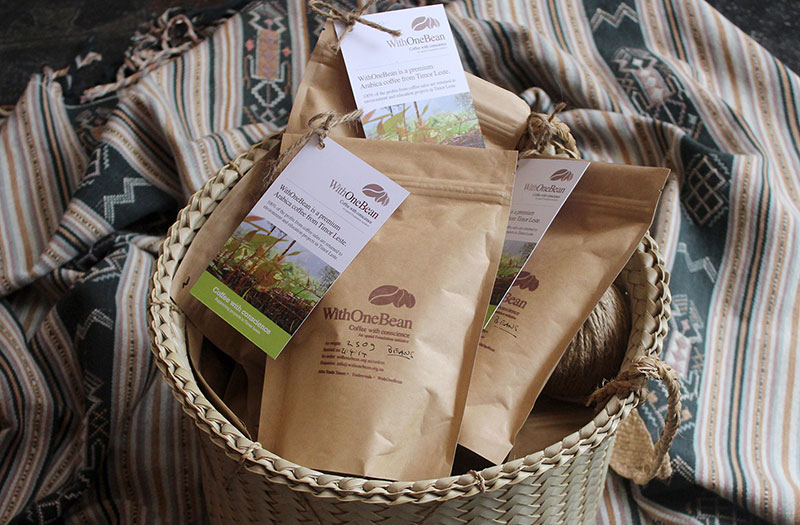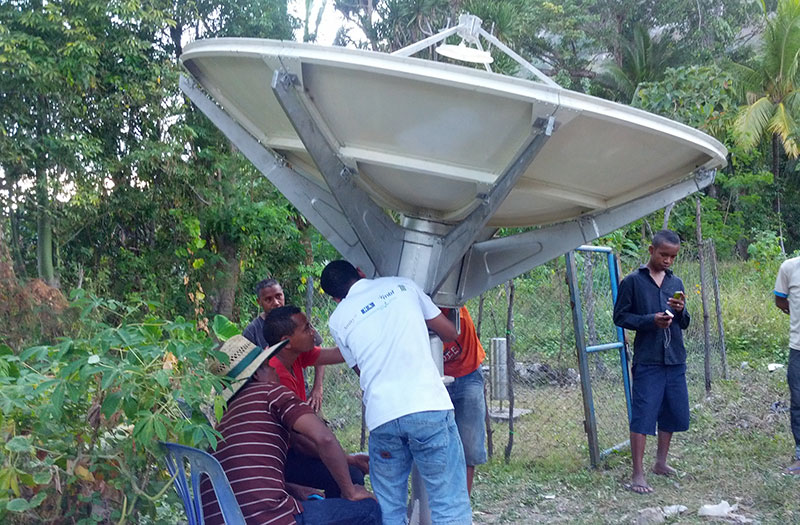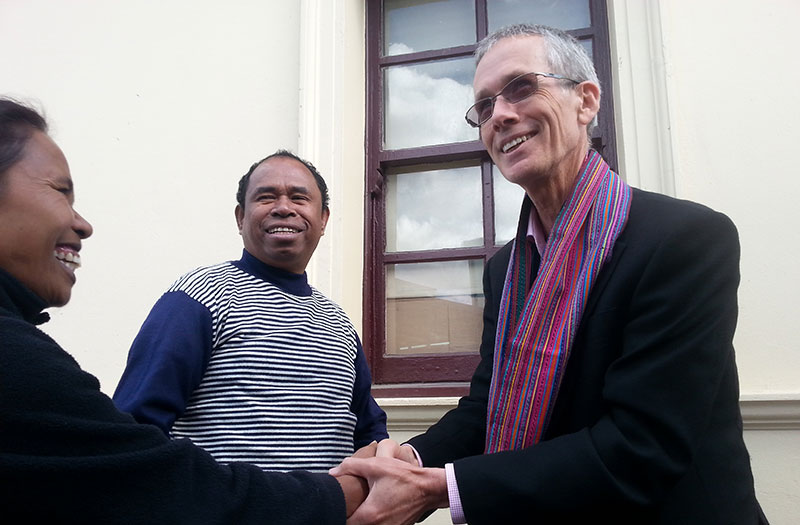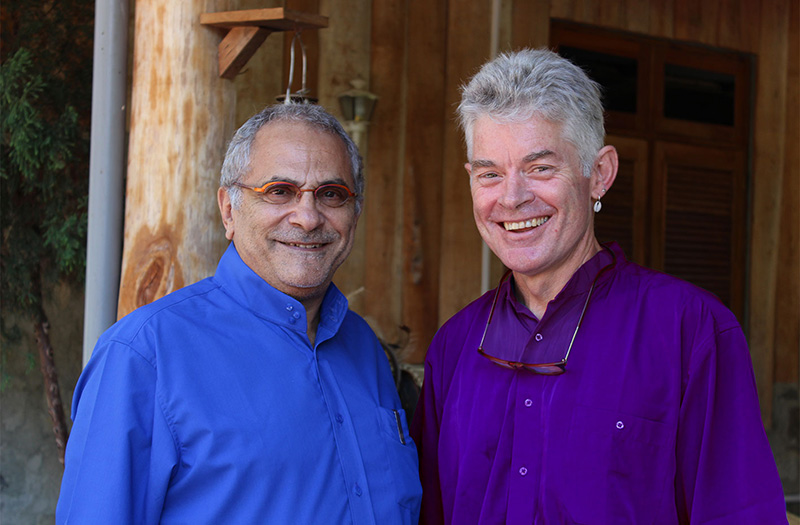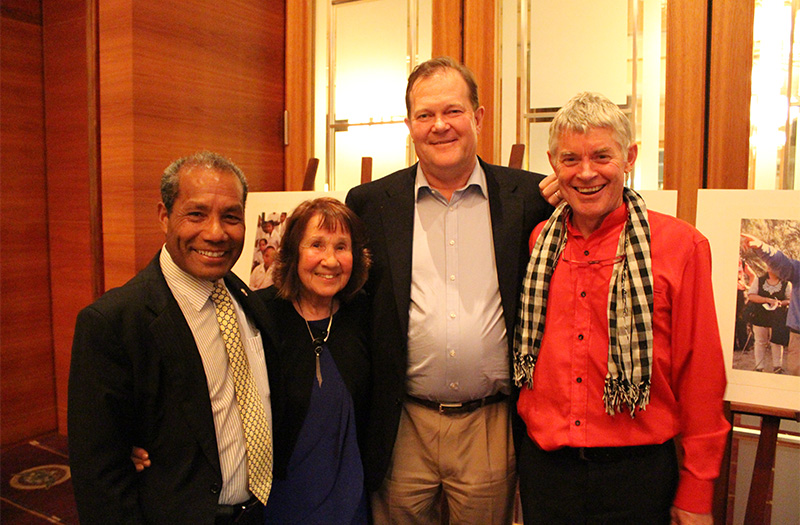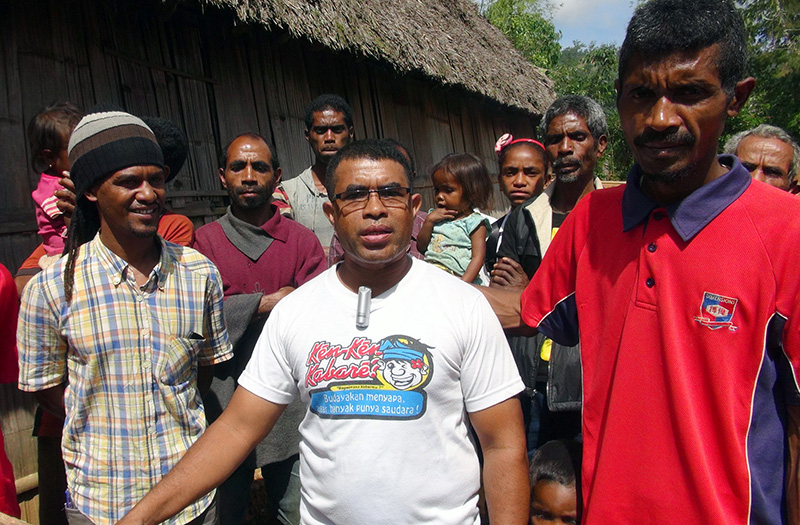WithOneSeed community forestry program is the first social enterprise acting on climate change through community lead forestry in Timor-Leste. It is dedicated to improving the resilience of subsistence communities to make environments sustainable, to end poverty and hunger, to deliver open education and to create regional partnerships.
xpand Foundation has developed the WithOneSeed program over the past ten years. It is a community participation program which assists subsistence farmers in the reforestation of their land. It is now the first internationally certified carbon farming program in Timor-Leste under the Gold Standard Foundation.
It’s about environmental justice, social justice and economic justice and supports 10 of the 17 UN Sustainable Development Goals. WithOneSeed also embraces the Universal Declaration of Human Rights. Both of these international standards provide a framework for our work.
Our long-term vision is to develop social enterprise models that can contribute to building village-based economies using environmental practices that are viable and support sustainable living. Putting an earned dollar in a person’s pocket empowers them to make decisions for their own future. It is beyond charity and aid.
The program has four commitments to:
> make environments sustainable
> end poverty and hunger
> increase education and training
> build regional partnerships.
Our approach is simple in its theory and application. We’re planting trees and planting ideas. Our innovation comes from the annual incentive payments made to subsistence farmers who maintain the trees, paid from the sale of carbon credits into the international carbon market. If a subsistence farmer has to choose between planting a cash crop or planting trees that may take 20 years to provide a financial return, the choice is obvious. However, if we can make a cash crop from trees that sequester carbon, the equation is quite different.
The context for the WithOneSeed forestation program in Timor-Leste is both local and global.
Timor-Leste Context
Timor-Leste is a low-income subsistence-farming economy. While the country continues to suffer the after-effects of a decades-long independence struggle against Indonesia, which destroyed essential infrastructure and displaced thousands of civilians there are a number of positive signs that improvements are being made.
For example, in 2002 Timor-Leste had nineteen doctors and today there are over 1000. Live expectancy in 2002 was less than 60 years and today it in nearly 70. The national electricity grid today reaches 80% of the country with the 2015 census showing 67% of households are connected.
Agriculture dominates the Timorese economy, accounting for 25% of GDP and approximately 75% of employment. Insufficient food production has led to a dependency on imports of rice and other commodities. While poverty is widespread in rural areas and health and education levels are poor there are positive developments that provide an improved outlook.
Forty-one per cent of the Timor-Leste population lives below the poverty line, average annual family income is no more than a couple of hundred dollars and while 62% of the population is able to read and write in the local language (Tetun), a significant number of children do not reach primary school grade six.
According to a 2015 FOA forest report primary and secondary forest cover in Timor-Leste has been in decline since 1975. By 2015 areas of primary forest had dropped to about 46% and today the forests continue to decline at nearly 1.6% a year.
Of critical importance to the people of Timor-Leste is the implementation of strategies to restore landscapes to a sustainable position, maintain them on an ongoing basis and achieve a range of environmental, social and economic outcomes, particularly food security, improved water supply and creation of employment and economic opportunity.
One of the key goals is to achieve change in the way that the community uses the natural environment. Reforestation activities as shown by the WithOneSeed community forestry program in Baguia are having signification environmental and economic benefits in the rural community. Reducing soil erosion, improving the water table both which will deliver health and well-being outcomes and delivering income through international carbon markets are building the local economy.
Developing the economic security of rural populations is essential to ensure progress in developing countries. One of the most damaging consequences of poverty in rural communities is the flight of people into the cities with the resultant problems of homelessness, unemployment, overpopulation and the collapse of social order.
One of the greatest contributions that can be made to the economic and social health of a developing country is to help keep families on the land, housed, employed, earning an increasing income and able to provide for their children’s working and educational future.
Family employment also ensures the employment of women and maintains their important roles in society and in education.
An outcome of special significance to disadvantaged rural communities will be the improved formal educational opportunities for children, facilitated by increasing and secure family income.
Global Context
A recent World Bank report shows that where forest cover loss is greater, poverty rates are also greater. (Timor-Leste Systemic Diagnostic: Pathways for a New Economy and Sustainable Livelihoods – World Bank 2018)
The recent IPCC report (Oct 2018) is clearly stating that afforestation and reforestation are one of the key short-term actions required to reduce carbon from the atmosphere. The report goes on to say that forests can contribute up-to a 30% reduction in carbon emissions.
Programs such as the WithOneSeed community forestry can deliver a reduction in poverty and reduce the global environmental damage by reforestation and the building of carbon sinks.
WithOneSeed’s objectives are both local and global. Globally deforestation is causing both poverty and environmental degradation and as the world is heading for more than 2 degrees warming before 2050 the situation is going to get much worse. Subsistence economies are particularly at risk. The World Bank and IPCC reports mentioned above provide the motivation for the establishment of WithOneSeed in Timor-Leste.
WithOneSeed is based on an annual tree-planting program, through a self-managed farmer cooperative. Small holder subsistence farmers receive an annual incentive payment for planting, managing and maintaining forest trees on their land. This facilitates the building of village economies. To put an ‘earned’ dollar is someone’s pocket give them the power to determine their own future.
WithOneSeed is the first internationally certified community farming program under the Gold Standard A/R standard in Timor-Leste and the Asia Pacific region.
The WithOneSeed program has embraced the United Nations Sustainable Development Goals (UNSDG) to end poverty, protect the planet and ensure prosperity for all.
WithOneSeed particularly helps realise the UN SDGs by helping to:
- end poverty and hunger and promote sustainable farming and lifelong learning
- promote decent work, sustainable agricultural communities and economic growth
- act to combat climate change, manage forests and reverse land degradation
- encourage global partnerships for sustainable development through regional relationships
- empower women and children, and particularly girls, by increasing family income, facilitating children’s education and creating family job prospects.
Furthermore, WithOneSeed also embraces the Universal Declaration of Human Rights in strongly committing to:
- the right to life, liberty and security of person
- the right to work, to free choice of employment
- the right to an adequate standard of living
- the right to education
- the right to full and free personal development available through community participation.
WithOneSeed community forestry started in Baguia, Timor-Leste in 2010. The program achievements to date are:
- Over 1200 Baguia farmers engaged in community forestry
- Over 500,936 trees under management
- Over 128,000 t CO2e removed from the global atmosphere
- More than 117,000 carbon credits sold internationally to companies driving toward carbon neutrality
- Over US$900,000 paid into the Baguia village economy since 2010
- Over 5% of Baguia farmers directly involved in planting and managing trees flowing on to just under 30% of the population benefitting financially from WithOneSeed
- 40 permanent full-time jobs and 15 casual jobs created
- Baguia Farmer Finance Cooperative established
- WithOneSeed achieving the internationally certified carbon forestry program under the Gold Standard Foundation
- Internationally recognised Master Tree Growers agroforestry training program established in Baguia
- The establishment of the Baguia Agroforestry and horticulture centre in 2019
- MOU with the Government of the Democratic Republic of Timor-Leste and WithOneSeed
- 10 of the 17 United Nations Sustainable Development Goals being addressed by WithOneSeed.
- WithOneSeed community forestry program expansion into three other Municipalities of Timor-Leste in 2019
- Establish Foundation Rei Matak in 2020 to manage expansion across Timor-Leste to be managed and directed by Timorese for Timorese.
WithOneSeed in Australia
WithOneSeed is ‘planting’ seeds through regional partnerships and open education initiatives to enable Australians to better understand the impacts of carbon on our environment, on our culture and on our rights and responsibilities as global citizens.
WithOneSeed in Timor Leste
WithOneSeed is working with subsistence farming communities to generate income through a community forestry initiative. The reforestation of their land reduces soil erosion, improves soil and water quality, crop yields and nutrition, which improves the health and wellbeing of the community. It also helps to build the local economy, boost education and training and to deliver social and economic participation.

